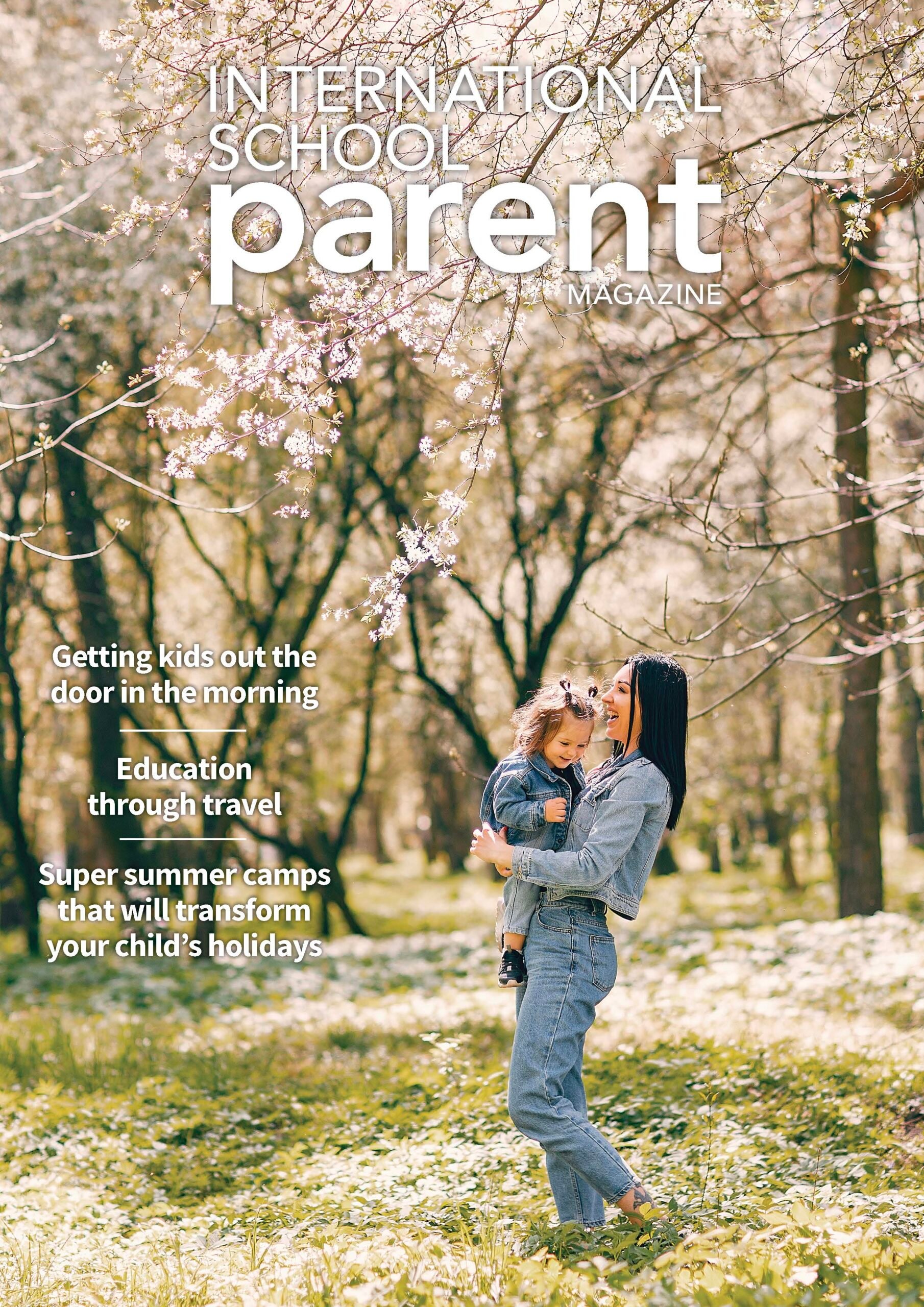Meet the Headteachers – Matt Williams – Geneva English School
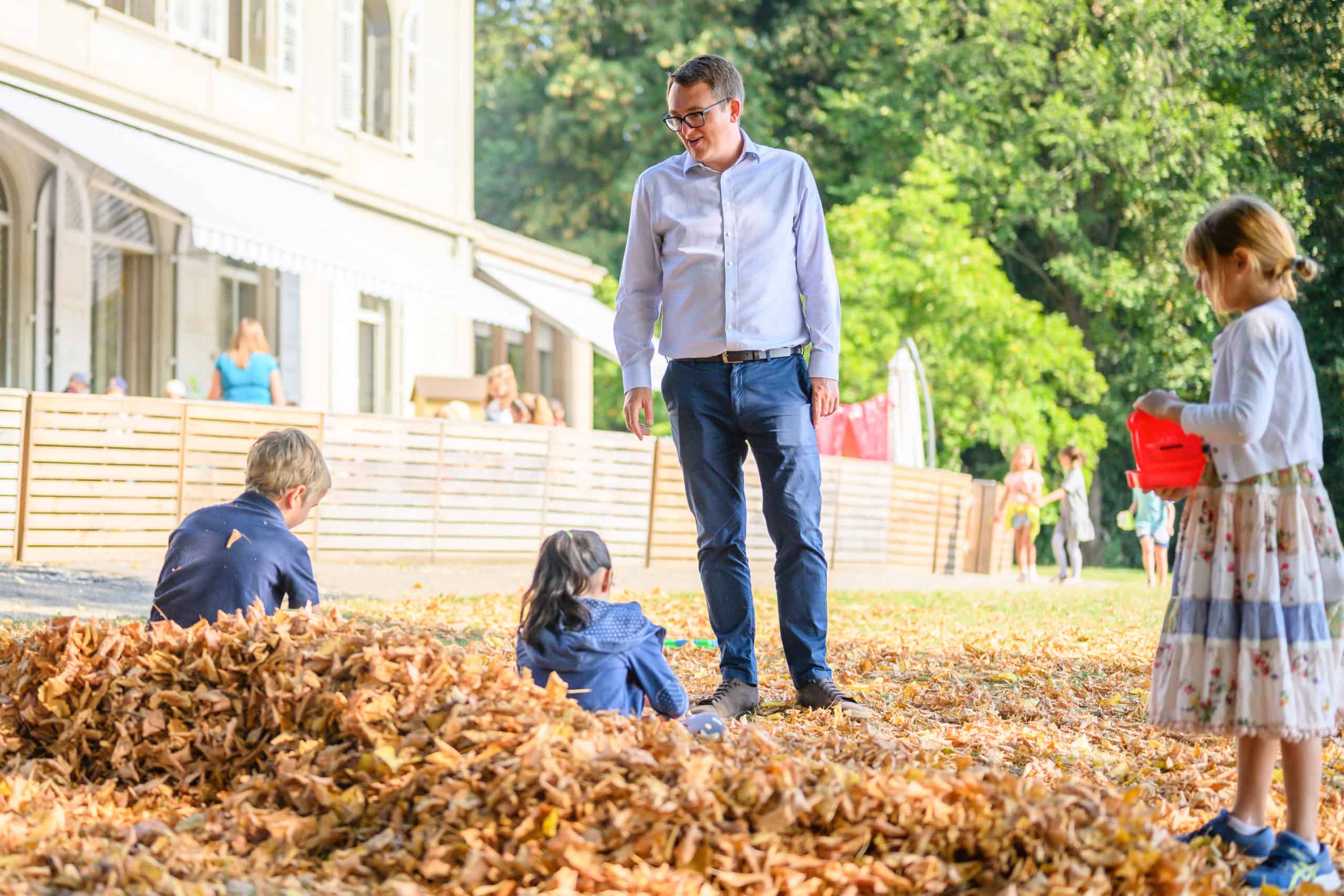
Geneva English School (GES) has a new Head at the helm. During the uncertainty of a global pandemic, Matthew Williams’ capable and experienced hands are sure to help one of Switzerland’s friendliest and most successful schools grow to reach its full potential. ISPM talks to Matt, Headmaster of GES about the right formula for creating happy, well rounded students who benefit from a truly personalised learning experience.
Let’s start with a little bit about you – what’s your background and what made you choose education as a career?
Well funnily enough, both of my parents are teachers, and I did not start off wanting to follow in their footsteps! But then I did some work around increasing participation amongst students from disadvantaged areas whilst at university and really enjoyed it, so I decided to train to be a teacher. I trained in Norwich at the University of East Anglia, then started out working at a comprehensive school in Reading and quickly became a pastoral leader. I then moved into central London and worked at several outstanding state secondary schools there.
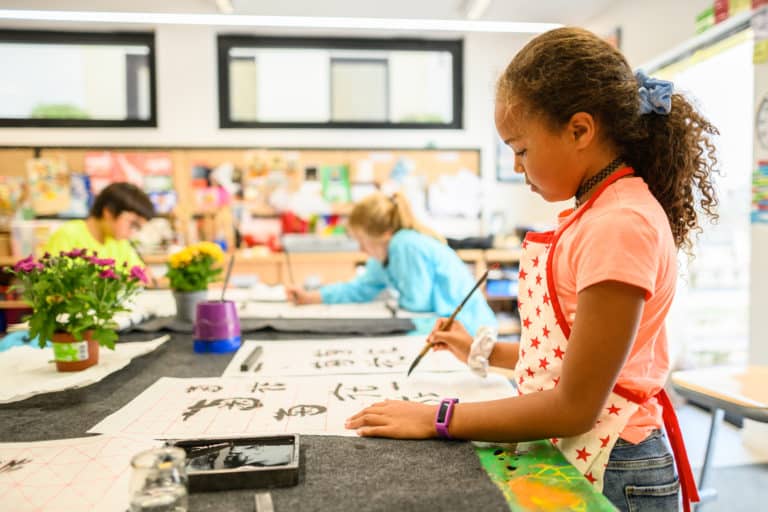
The first school I moved to was in Waltham Forest – a relatively small school with a diverse student and staff body, which was an enjoyable time for me. I quickly realized, as a head of faculty there, that if I wanted to be involved in moving the school forward or helping a broader group of students then senior leadership was the route to take. I was selected as a candidate for Future Leaders, a prestigious accelerated school leadership scheme, which takes individuals with great potential and accelerates them to headship within four to six years. As part of that program, a professional mentor from outside the education world worked with me and I had the opportunity to visit and learn from outstanding schools across the UK and the US. Over four years, I gained a huge amount from both the mentorship and professional development – and this is something I have tried to offer to my own teams. I think it is hugely beneficial to have opportunities to look outside the education sector and take the best from business and industry to become a better leader and to make the education we offer our students relevant and cutting edge.
Most recently, I spent six years as the Principal at the outstanding Chelsea Academy in central London. I joined just as the first cohort of Year 11s had finished their GCSEs, with the mission of developing the educational offering and expanding the Sixth Form. When I became Principal at Chelsea, it had a small Sixth Form and had vacancies across the different year groups. By focusing on the quality of teaching and the development of the staff, as well as the academic performance of the students, my team and I were able to turn the school and its reputation around very quickly. We went from 80 students to almost 250 in the Sixth Form, and we had a huge waiting list for the school. I am very proud of my achievements at Chelsea Academy – and I think the opportunity to further develop and grow the school and give the students the best modern British education is really what attracted me to the role at GES.
How will your experiences and philosophies inform your approach as Headmaster at GES?
My philosophy is quite traditional – our students need to develop to a high level academically within an educational experience that broadens their horizons. For me, there is so much benefit to be had by looking to the outside world and making sure that what we teach our students in school is relevant and will enable them to be successful in the future. I think that academic success – gaining a good set of GCSEs and A Levels – is still important in that too. I want to make sure that our students are getting the best learning experiences tailored to them, from nursery through to Sixth Form. This starts with our teaching staff, and their subject and curriculum knowledge and using best practice in the classroom. GES has long had the philosophy to foster a love of learning that stays with the students long after they graduate from the school. I believe strongly in the benefits of broad learning experiences. It is important for children to have some formative cultural experiences while at school, like learning a language, seeing a piece of theatre, going on an adventure, travelling to a new place. This is already apparent at GES and is a real strength of the school. I am very keen for the students to take advantage of everything that Switzerland has to offer through trips, visits and outdoor learning in the wonderful environment around us. I want to develop this more holistic approach so that we are preparing children to be inquisitive and interested in the wider world around them – and teach them the skills to succeed in higher education and the world of work. Looking to the future, I want us to build on the wonderful education that students already receive at GES by making sure that our students are resilient and able to problem solve effectively. We need to build those broader skills, interests and ethical foundations that enable our students to make the right decision no matter what they are faced with in the changing world of work in the future
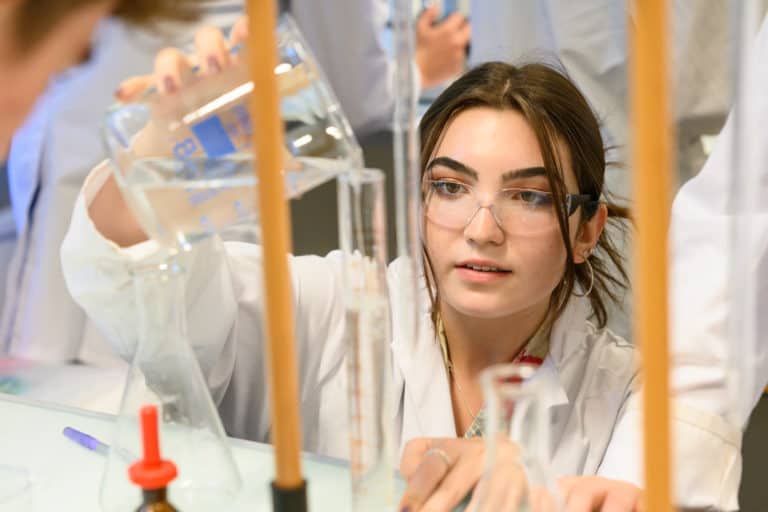
What is your vision for the school – will you be bringing anything new in or changing anything?
The really exciting news is that we are opening our A Level programme this September. This will make GES an all-through school and offer a great alternative to the many IB Diploma schools in Geneva or for families who have traditionally sent their children to UK boarding schools. The depth of study and quality of teaching will be the highlights of this globally renowned post-16 programme, which surprisingly doesn’t yet seem very well known in the area.
But my overall vision for the school is rooted in my philosophy – to create an environment where students fulfil their academic potential while benefiting from broader learning and cultural experiences, to ensure they become kind, inquisitive and successful adults.
In terms of curriculum and learning changes, technology and linking to local organisations will play a larger role. We are going to introduce subjects like coding and robotics lower down the school. It is fantastic that there is already a thriving robotic club at GES, so we are well placed to take on more ambitious projects. I am aiming to get experts to come in and talk to our students, and we are in the perfect location for connecting with local organisations doing inspiring things, like CERN for example. Dedicated lab or developer spaces to give students the opportunity to be creative and learn outside the traditional classroom space are also part of our plans.
We will also develop our provision of French more widely across the school. We have some gifted linguists and it is important that we can challenge and develop them even further than we do. Our students who graduate from the A Level pathway will have the language skills and qualifications to access the leading higher education available locally in Switzerland, as well as the option to go to top universities across the globe.
In terms of wider changes, while we are growing the school, we want to retain the wonderful character and soul of GES so that our students continue to benefit from our personalised approach. By having between 40-45 in a year group, we will be able to individualise their learning and give them a well-rounded and memorable experience. I want to forge a lifelong love of learning within our students.
And how do you encourage that love of learning?
I think it is about making learning enjoyable, but it is also about fostering a sense of inquisitiveness by giving students free rein to investigate something that sparks interest. We want them to have the flexibility within the curriculum to look at something and ask, ‘why is that like that?’ or, ‘why is that happening, and where can I find that information?’ and be able to go off on tangents with the teacher’s input and support. It is crucial therefore to give teachers the flexibility to do this and empower them to showcase their own areas of interest. If they are enthused about something it transmits a sense of joy about learning and discovery to the students. It allows them to approach knowledge with curiosity and excitement, which in adult life continues to drive you to learn and develop.
What is your favourite thing about the learning environment that makes GES so special?
Fundamentally, it is about the strong relationships and sense of community here – there is a friendly and happy energy about it. We have recently analysed a parent survey and one of my favourite quotes was: “you never see an unhappy child at GES”, and that is so true. The space we offer the children to run around, explore, and get to know each other really contributes to that, and we encourage positive and long-lasting relationships between our students. The size of the school really makes a difference. Our parents are happy with the fact that in a secondary environment, they are not lost in a school of 1,000 or 1,200; the teachers know each of the students individually and can offer truly personalised learning.
It is also the pace of learning and what is going on in the classroom that makes us stand out. Our students benefit from a breadth and depth of learning: it is academic, varied, and places value on play and discovery. I want to deepen this playful idea within all age groups, so that our students feel confident about learning and making mistakes because they are enjoying discovering new ideas.
Have you seen the process of new students arriving and how do you manage that – especially now?
It is tricky because we have implemented strict Covid-19 measures to try and limit the possibility of transmission as much as possible in the school. Fortunately, I was here for the new families arriving and we managed to welcome the students and their parents into the school by socially distancing an in person event. We make sure that there is a comprehensive induction programme planned for the students so that they can meet their teachers and they understand what they will be learning. Our rules mean that parents can’t come in during the school day, but we are able to run tours after 4pm, so that parents can meet the teachers and see the space, because we believe this is very important for prospective families.
The whole approach of the school is warm and family-oriented, and it extends to helping our families settle. We make sure that families have a point of contact in our admissions team, and we will proactively touch base with them to make sure they are happy. Our reception team also does a fantastic job of helping with any other enquiries that families moving to Switzerland might have, like where the nearest dentist is and how to register with a vet. We have a very strong network between families here, and everybody mucks in to help a new family get on its feet. The big thing we are missing is having big events where everyone can meet, but hopefully we will be able to do that next year.
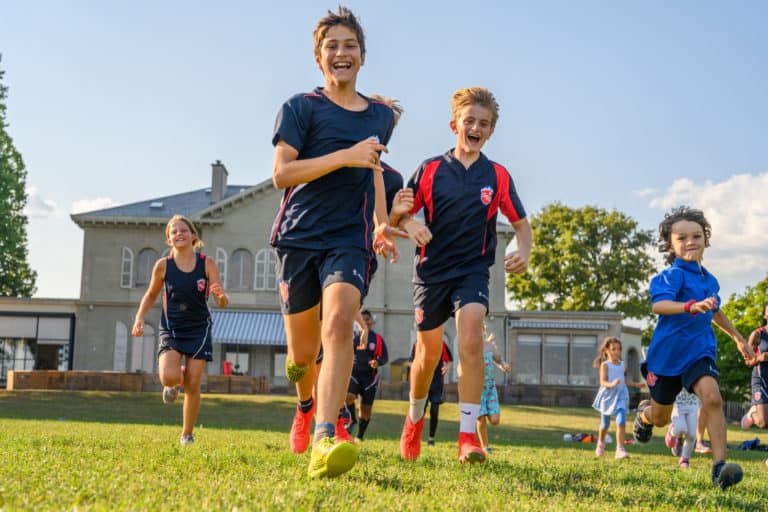
What do you think will be the major challenges facing students and education in the future?
One of the things that we have seen during the Covid-19 lockdown is a much deeper reliance on screen-time for work and communication – and we are also seeing the true effects that this can have on our mental and physical wellbeing. If working remotely becomes more of a permanent feature, I worry for young people that they may suffer in the future. This is also true when you rely too heavily on iPads or laptops to deliver learning; there’s so much that children can learn through more tactile and outdoor experiences. The challenge is to find the balance where students benefit from the pros of technological learning and are aware of, and understand how to mitigate, the cons.
I also see the increasing challenges that young people face getting into work and what that will look like in the future – and that’s something that we are trying to equip students to approach successfully at GES. While an academic record is still highly prized, organisations want young people to be able to have a wider range of soft skills and experiences that make them adaptable and innovative.
Then there is the wider educational conversation around the importance of exams. We have seen over this year that there needs to be a discussion about their place in our educational system when, as professionals, we know our students and their capabilities to assess them ourselves. There should be more trust and responsibility delegated to teachers to do this.
What is your vision for GES graduates?
On my first day at GES, I spoke to the students about kindness and treating people well – there seems to be a worrying lack of empathy and human kindness between people in the world. I believe that at GES, we are responsible for raising the leaders of tomorrow to be kind and respectful of differences in others. As well as being academically successful, I want GES graduates to go into the world with the ability to approach the challenges they face with self-awareness and resilience and maximise the opportunities for self-development and joy.
And for you personally, how are you finding Switzerland and everything it has to offer?
The trails in Switzerland are amazing and walking is one of the things I have enjoyed most so far. The scenery is just stunning and being able to go out and do that so easily even from the house is fantastic. I have found Switzerland to be a wonderful country to move to: it is friendly, it is relaxed, it’s beautiful.
Find out more about Geneva English School here.
More from International School Parent
- Geneva English School
- Outstanding GCSE results for Geneva English School students
- Meet the Headteachers – Tim Meunier – Geneva English School
- Lessons From Lockdown
- A Level Schools in Switzerland
Find more articles like this here: www.internationalschoolparent.com/articles/
Want to write for us? If so, you can submit an article for consideration here: www.internationalschoolparent.submittable.com
